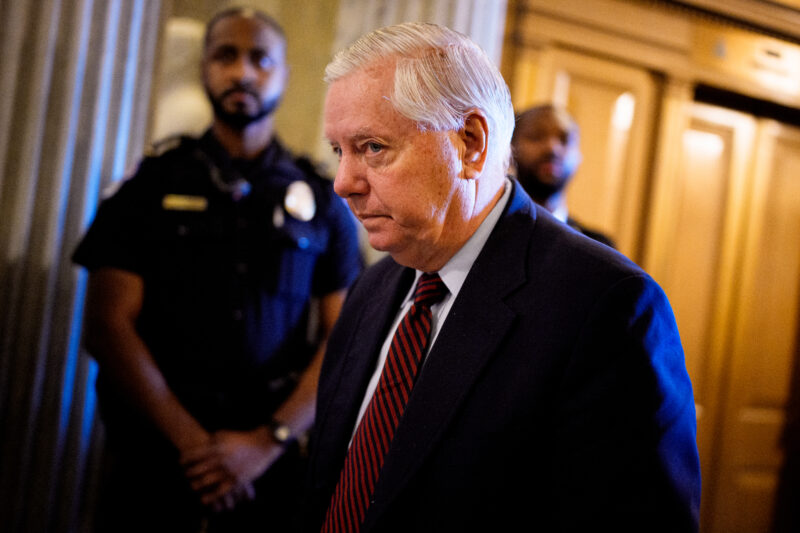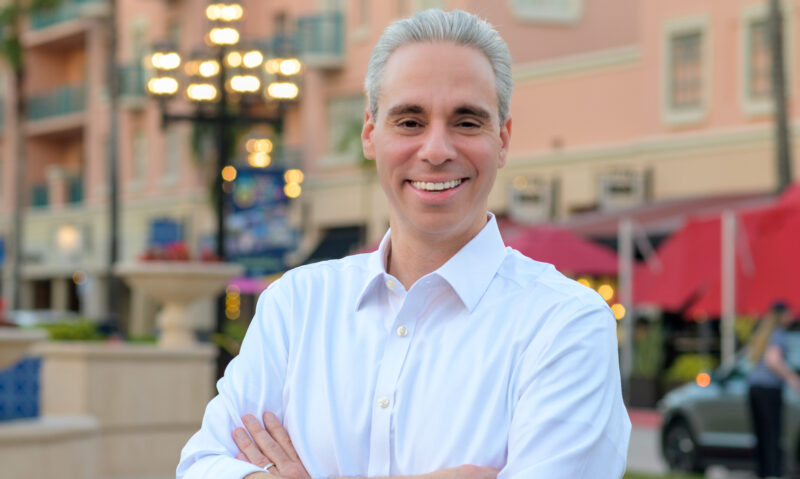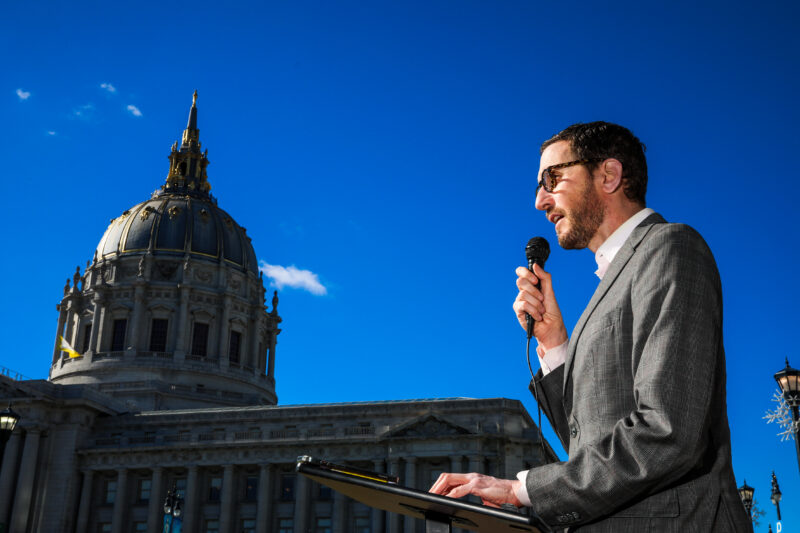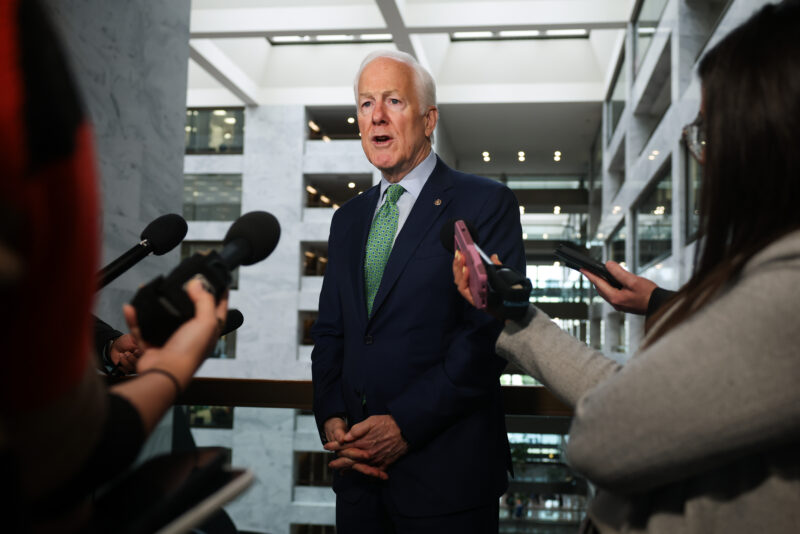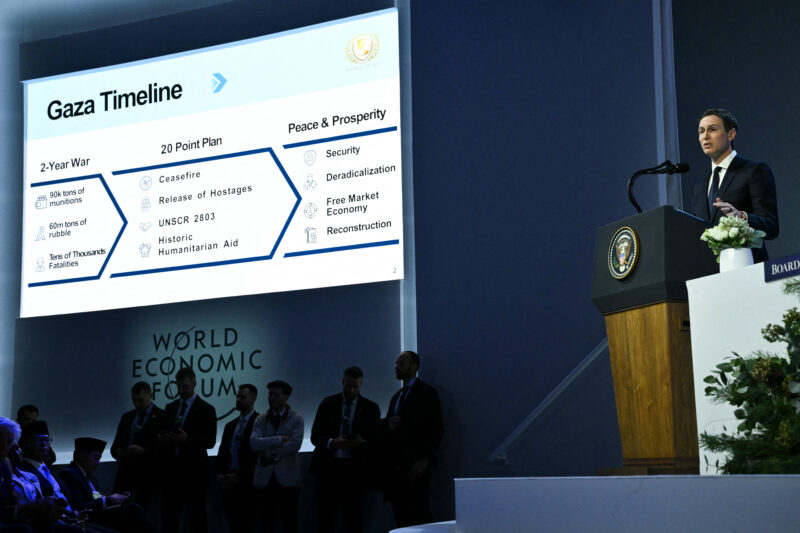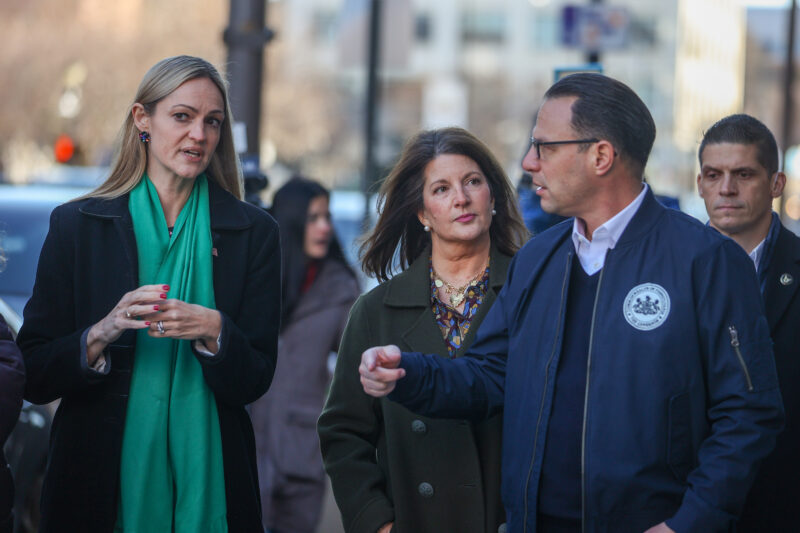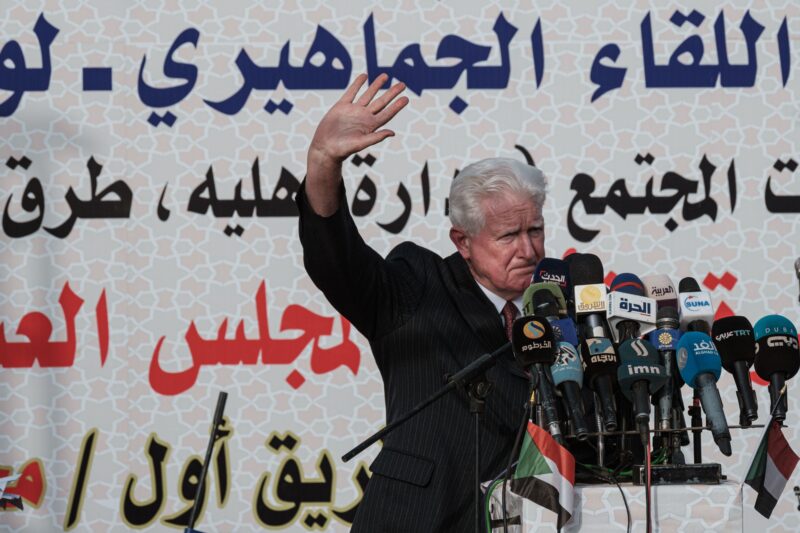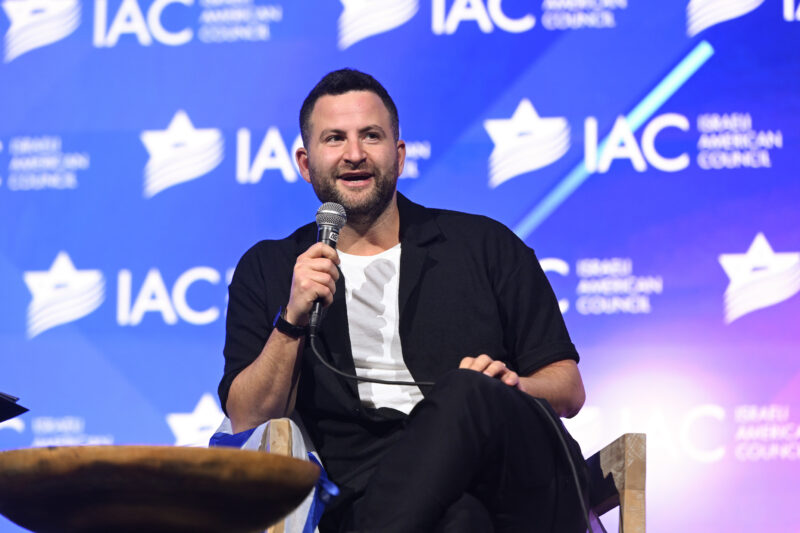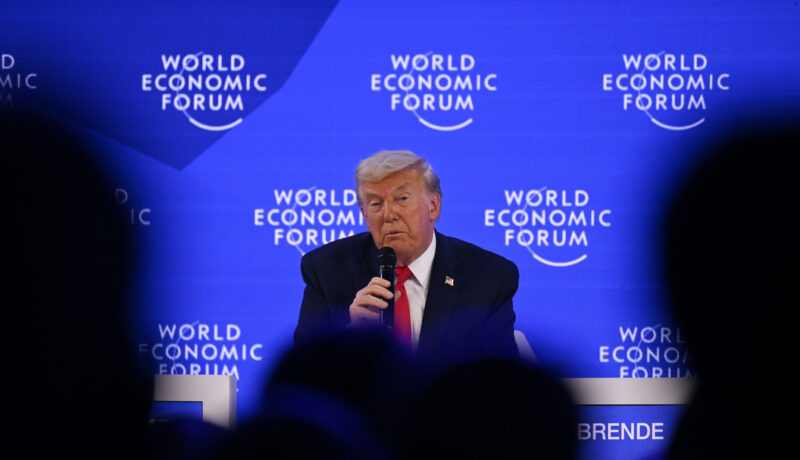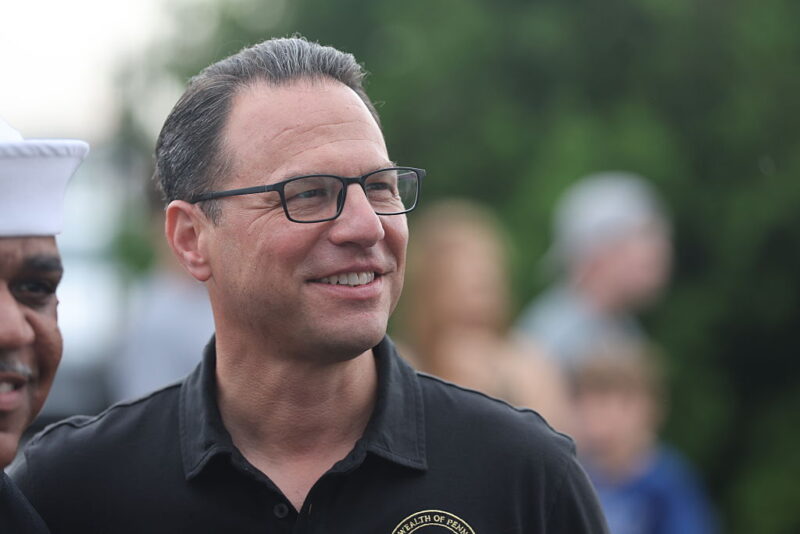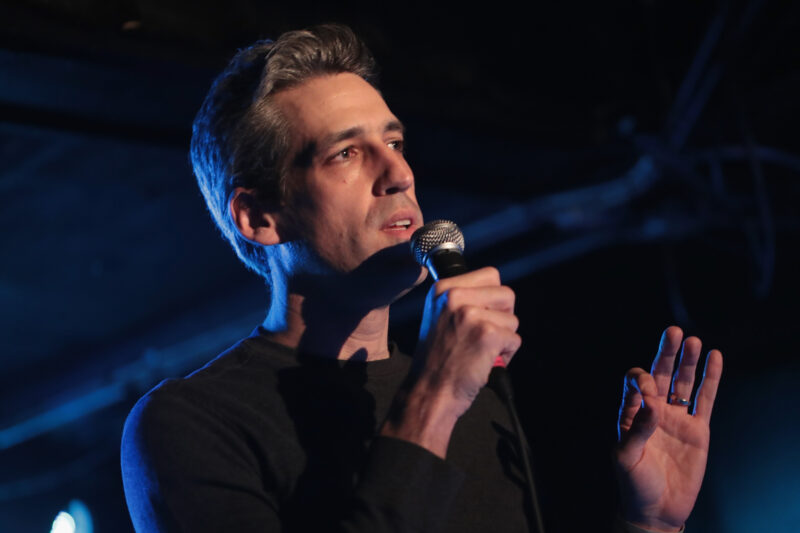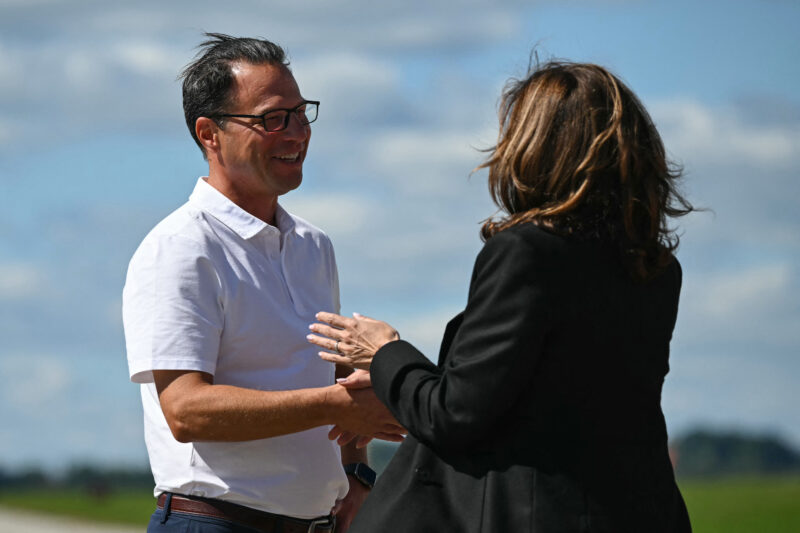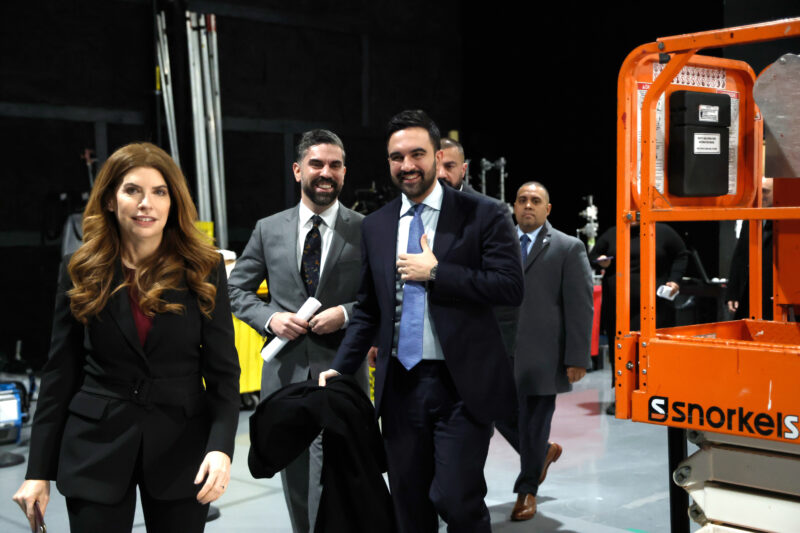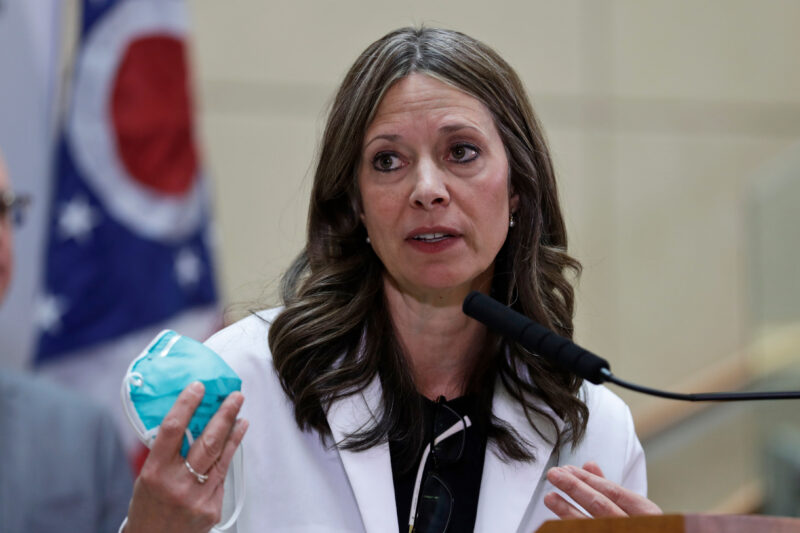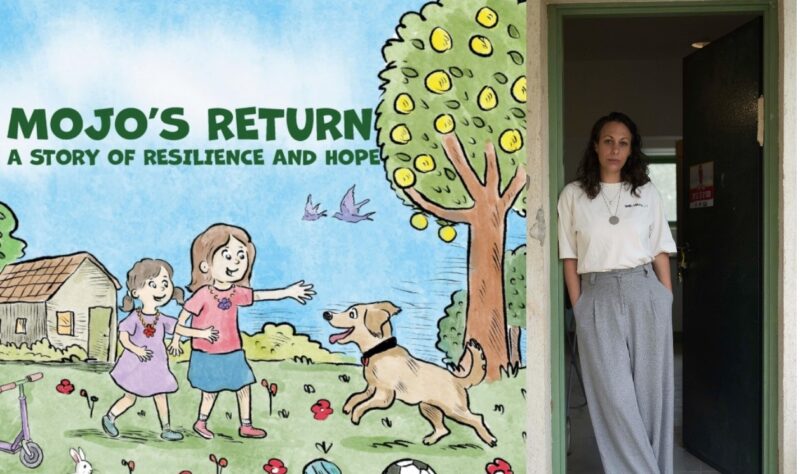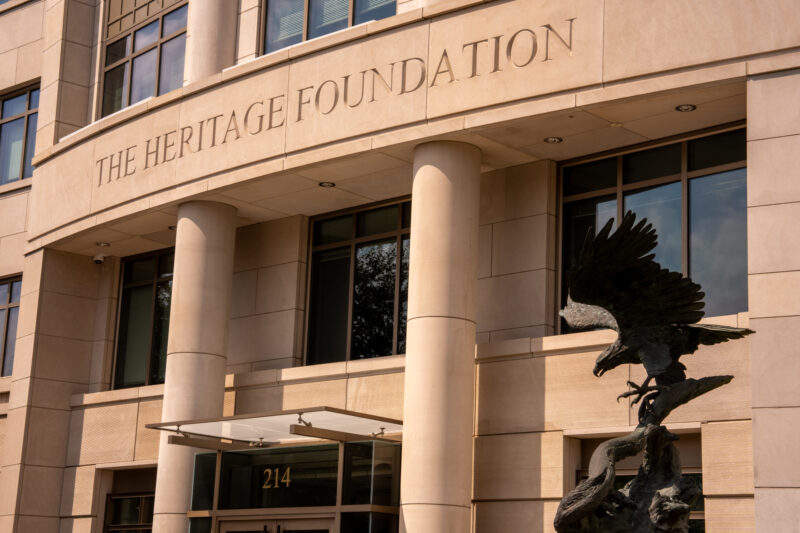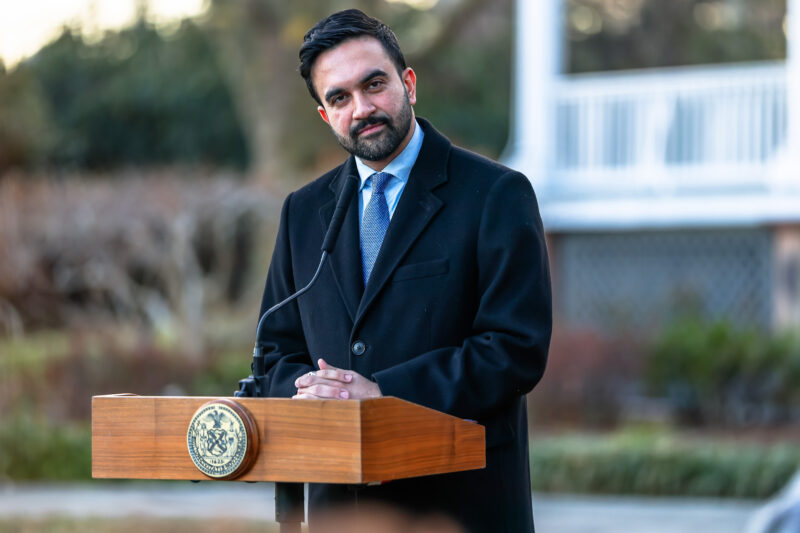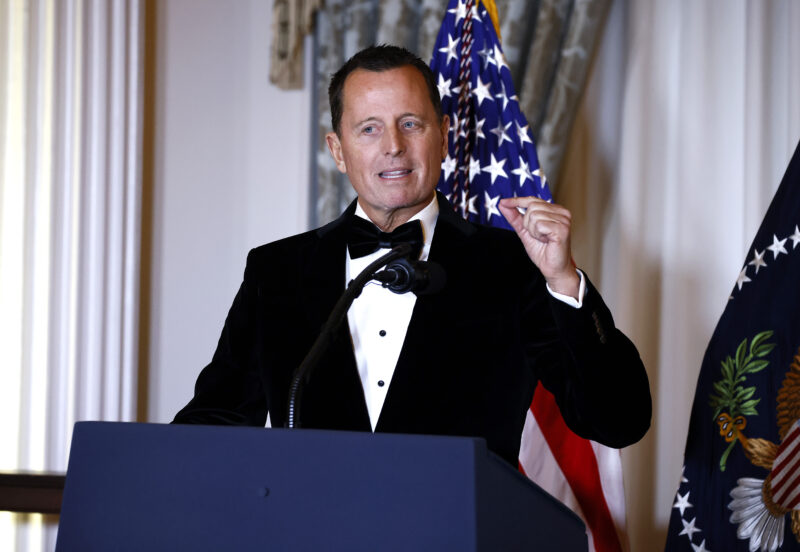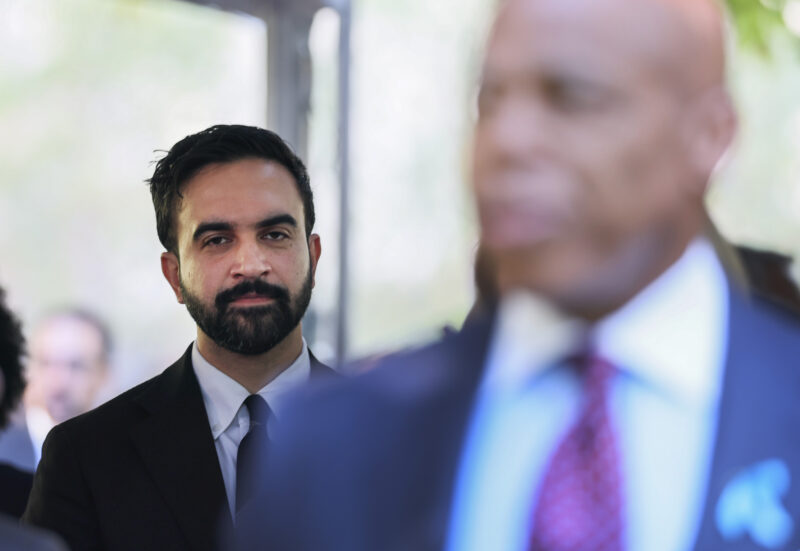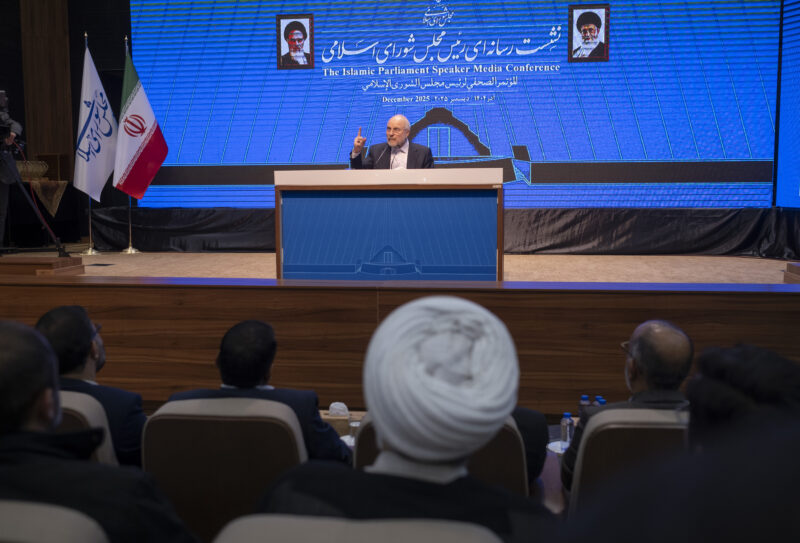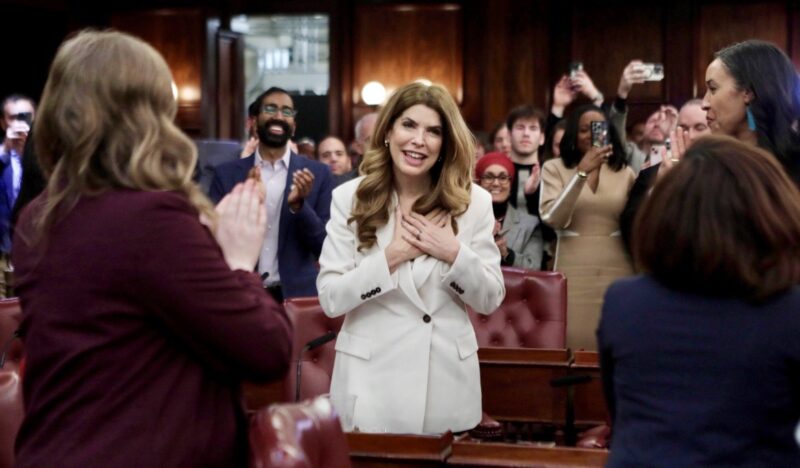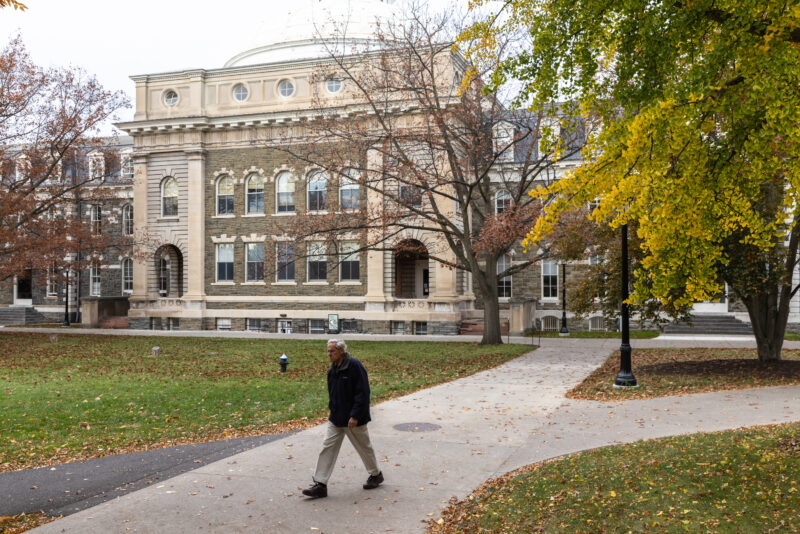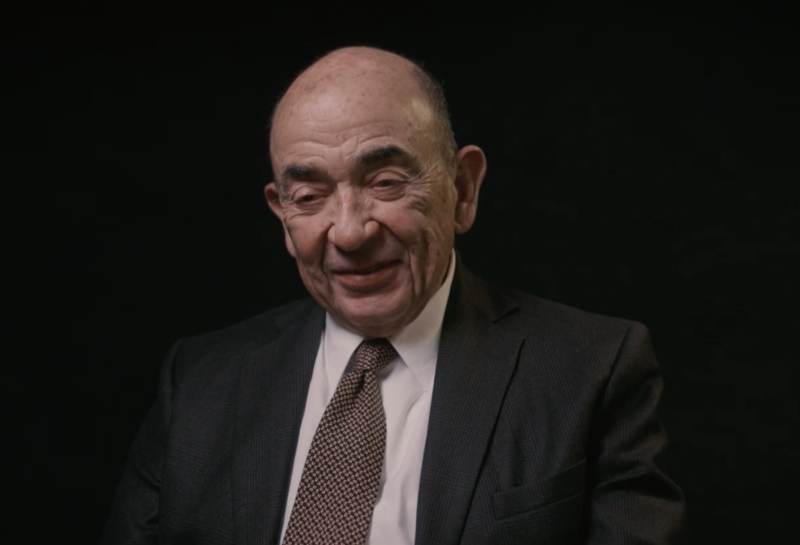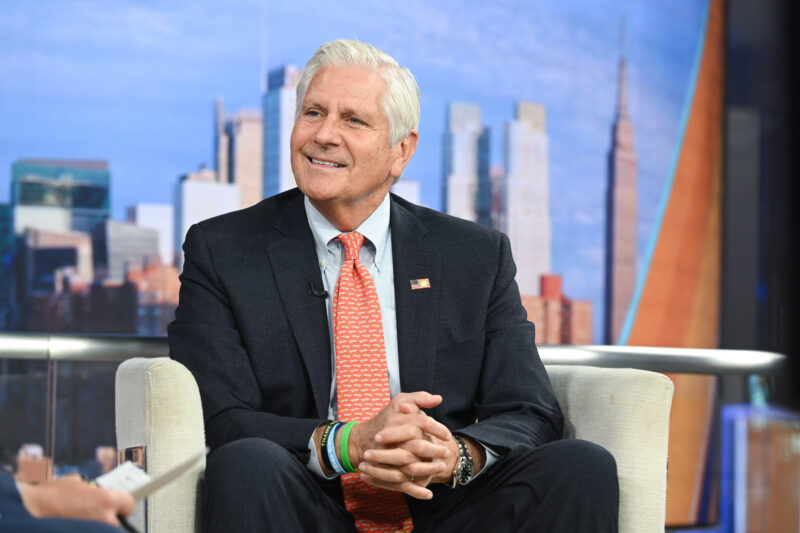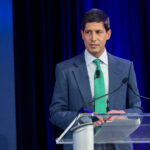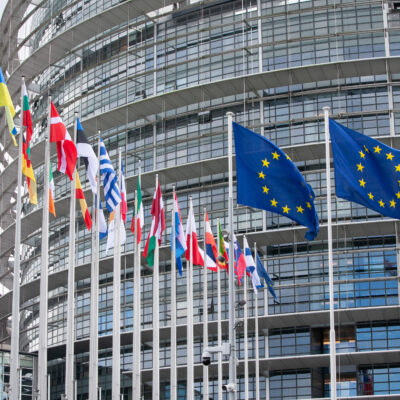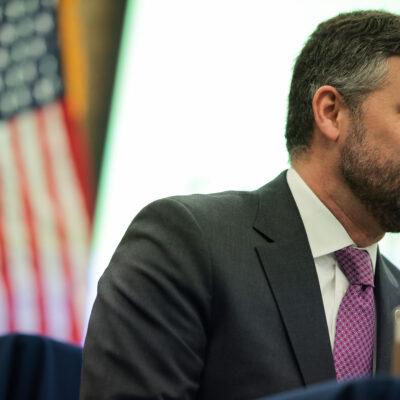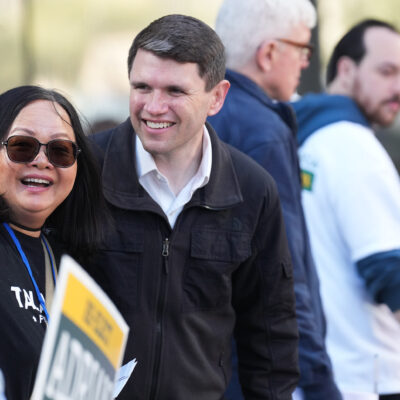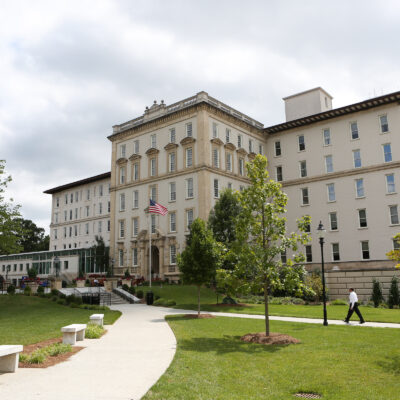Netanyahu joins JI’s podcast to discuss Zelensky, Iran, Saudi, his new gov’t and economic reforms
The incoming Israeli prime minister spoke to Jewish Insider’s podcast after announcing the formation of his government

Ilia Yefimovich/picture alliance via Getty Images
Likud leader and former Israeli Prime Minister Benjamin Netanyahu speaks at the President's Residence where he received mandate from Israeli President Isaac Herzog to form a government.
On Wednesday night, Israeli Prime Minister-designate Benjamin Netanyahu announced he had formed a government, cementing his return to power a year and a half after his ouster by a coalition led by Naftali Bennett. In his first English-language interview since officially forming his government, Netanyahu joined co-hosts Rich Goldberg and Jarrod Bernstein for a special episode of Jewish Insider’s podcast.
During the conversation, Netanyahu discussed Ukrainian President Volodymyr Zelensky, Iran, the Israeli economy and criticism of his new government.
Below are excerpts from the conversation.
*****
Goldberg noted that Ukrainian President Volodymyr Zelensky addressed a joint session of Congress this week, and asked Netanyahu for his reaction to the speech.
Prime Minister Benjamin Netanyahu: “Well, I’ve only seen parts of it, but I think it was a strong speech with a strong message. And it looks like it was well-received, to say the least.”
Jarrod Bernstein: “Prime minister, if you were giving a record-breaking fourth address to a joint session of Congress, what would your message be for the joint session now?”
Netanyahu: “I think my message is constant. It’s peace through strength, prosperity through free markets, and the alliance of the like-minded states to assure our place and our permanence, to the extent anybody could do that, in history. That’s really something that unites us across nations, across oceans and across time.”
*****
On the Joint Comprehensive Plan of Action, the official name for the 2015 nuclear agreement with Iran, Goldberg described the deal as “only mostly dead,” given that Iran has not faced recent U.N. sanctions. When asked if he was troubled by the lack of action despite recent activity in Iran — nation-wide uprisings, aid to Russia in the form of drones — Netanyahu said he was, but added that sanctions are not enough.
Netanyahu: “Yes, it doesn’t trouble me, but I’ll tell you, much more than the snapback or the crippling sanctions which are needed…there is a necessary and sufficient condition to stop a rogue state from developing nuclear weapons, and that is a credible military option. A credible military threat. And I would go beyond that, and I would say the willingness to use it if the threat doesn’t deter. Now, there have been five rogue states that have sought to develop nuclear weapons: The first was Saddam Hussein’s Iraq. It was stopped by a credible military action by Israel. The second was Bashar Assad, Syria. It was stopped by a credible military action by Israel, again. The third was Qaddafi’s, Libya. It was stopped by a credible military threat by the United States. The fourth, North Korea, was not stopped. North Korea was a signatory to the Non-Proliferation Treaty, it didn’t mean anything, or any other agreement that they signed. They did not face a credible military threat and therefore they developed a nuclear arsenal and the means to deliver them to half of Asia, and pretty soon, and perhaps now already, to the western seaboard of the United States. So that is a failure. And the fifth is Iran. Iran has been, frankly, at my behest, and in many ways Israel’s encouragement and push, has been facing all sorts of things that have prevented it, have delayed it from achieving nuclear weapons…I don’t think any nuclear agreement would stop them, they cheat on the agreements. The JCPOA is so bad that if they keep the agreement, they get to nuclear weapons, with hundreds of billions of dollars of sanction relief, in a few years. So the only way that Iran will be stopped is if there is a credible military threat that ideally would be backed by the United States or even promoted by the United States and the major powers. I have come back to office to the genteel world of Israeli politics, I’ve come back for one reason, one main reason, and that is to do everything that I can, as I’ve done over the past 15 years of my premiership, to prevent Iran from having nuclear weapons that will endanger my country Israel, will endanger your country the United States, and just about everything in between.”
*****
Rich Goldberg: “Prime minister, you mentioned about enlarging that circle of peace, the Abraham Accords. You just gave a very historic interview to the Saudi television outlet Al Arabiya. You’ve spoken repeatedly about securing Saudi-Israeli normalization being one of your top priorities. Curious, are you open to arrangements that fall short of full diplomatic relations — trade offices, Israeli access to certain commercial zones — or do you see those as steps that would limit true normalization, you sort of want to go big?”
Netanyahu: “No, I want to go as big as we can, but sometimes to take a long journey it takes smaller steps, and that’s not a problem. Look, you should understand already that we have things in place. The Saudi government’s decision to open up Saudi airspace to Israel occurred before the Abraham Accords, that gives you a pretty good clue that they didn’t look askance at the Abraham Accords. This was done in 2018, the Abraham Accords were done in 2020. And yet, two years before we signed the agreement, or perhaps I’m wrong, a year and a half, Israelis began to fly over the airspace of Saudi Arabia to the Gulf states and other places. So that is a clear sign of a change. Now I hope to bring about a full, formal peace as we’ve done with the other Gulf states like Bahrain and the United Arab Emirates. It’s up to the Saudi leadership to decide that. I hope they will. And I intend to explore that alongside my other main goals. This is a very important goal, because if we have peace with Saudi Arabia, we are effectively going to bring an end to the Arab-Israeli conflict.
I didn’t say Palestinian-Israeli conflict because Palestinians are the last holdout. They don’t want peace with Israel, they want a peace without Israel and they don’t want a state next to Israel, they want a state instead of Israel. So they’ve been vetoing any peace agreement that we would have with an Arab country that would deviate from that position. And for a quarter of a century we were told, I described this in my book, by successive American presidents… and the foreign policy elites in Washington and elsewhere, they said, ‘You cannot have peace with the broader Arab world unless you first have peace with the Palestinians.’ Given that they don’t want peace with Israel, they vetoed peace with anyone else. It took me a while to get around that and to get to the Arab states, and I could do that because of the rising power of Israel. [Because of] the rising economic, technological, military and diplomatic power of Israel…we would no longer be seen by our Arab neighbors as their enemy but as their ally…So I would say that these are great opportunities that we have, but they require getting out of the Palestinian group, the Palestinian straitjacket that has limited many Israeli governments and many other governments from exploiting the tremendous congruence of peace, real peace, that we have now. And I intend to pursue it.”
*****
On the critical economic reforms Israel needs:
Netanyahu: “Deregulation, deregulation, and deregulation. You know, once you bring down taxes, which we have, and once you reduce the government budget, which we have relative to the GDP, once you get control of… all these things, you can still stifle business. I will say the way we got the economic revolution, the free market revolution, was to take semi-socialist Israel, which was enormous government spending, enormous taxation, [and] reduce the government spending and reduce tax rates. This was a big battle, a big conceptual battle, and a big political battle…And I said in a national economy, all economies are basically pairs of a public sector sitting on the shoulders of a private sector and the private sector is the one that carries the race, and in our case, it got too fat. So we had to put him on a diet, the fat men, the public sector, on a diet — very hard to do politically…the guy at the bottom, what do you have to do, you have to put oxygen in his lungs so he could run faster. What is that oxygen? Lower taxes, lower taxes, lower tax. I had a big argument there, too. I described it, because they said, ‘Well, if you’re going to lower tax rates, you’re going to create deficits.’ And I said, ‘No, you’re not, not if you’re on the right side of the Laffer curve.’ …As you lower tax rates, you actually increase revenues because more people invest, more people work and so on…you need regulation in the economy, obviously, but you need smart regulation and you don’t need over-regulation. And typically, in most free economies today, the free countries, they suffer from over-regulation, so I’m going to deregulate as best I can. I’ve already done that in my previous terms in office, I got Israel from the second-to-the-last place in the OECD, the organization of advanced economies, to a good place, a bad place in the middle. I don’t want to be in the middle. I want to be at the top, and we’ll do that.”
Following up, Bernstein asked Netanyahu how he planned to curb the growing issue surrounding funding for the Haredi community and the impacts of demographic changes and education rates on Israel’s hi-tech sector.
Netanyahu: “Well, my view is, and I’m going to advance it in this coming government, is to create it on a voluntary basis, through their networks — not force-feed them, but do it through their networks, under their standards, religious standards, whatever… the cost of information, the cost of education, the cost of branded education… is going down precipitously. So we can exploit that. You can give everyone a Harvard, MIT or Stanford [education], I mean that seriously, by giving them access to people who teach there or in our excellent universities with technology. Just don’t force-feed them, offer it. See how far you’ll get. And in fact, that is what is happening now…My point is right now, we have to go to the next step, and that is to offer the ultra-Orthodox community, the Arab community and so on, the benefits of free education that can be done by anyone at their home or the community center, and so on…It’s an easy concept, [but] we have to make sure that we actually provide it.”
*****
Bernstein: It’s often been said that the prime minister of Israel is both the prime minister of Israel and the prime minister of the Jewish people, which is a really hard job to do both at the same time. And there’s been a lot of hand-wringing in American Jewry, particularly left-of-center American Jewry, as you’ve formed this latest government, about who’s in it, their feelings on lots of different topics: LGBT rights, right of return, conversion. what do you say to American Jewry, diaspora Jewry, that has uneasiness about the direction they think your government is taking and what the policies are going to be?
Netanyahu: You mean the policies they are told that my government is taking by hostile press in the United States and in Israel? Well, you know, there are two answers to that: One, look at my record, and you can see exactly the kind of policies that I pursued and in fact did none of these things, in fact, did the opposite, turned Israel into an innovation juggernaut, and you don’t do that with a closed society. In fact, I think I opened the society. Many of my critics were against all the free market reforms that I did, [all] the educational reforms, [all] the, you know, my challenge to the unions and to other things. I think one of the things that has happened is that most of them have now accepted my view, as they’ve accepted my view of peace through strength, prosperity through free markets and peace through strength…they were challenged by a lot of the people who criticize me today, and they also said that I would bring doom to the quest for peace. I would start wars, peace with our Arab neighbors would be moribund, and so on, and the opposite has happened…
This government is a coalition government — Likud is by far the biggest party in the coalition, it’s also by far the biggest party in Israel — and other parties are joining me, I’m not joining them. And we have, I have my hands firmly on the steering wheel, despite the populist and imprecise, frankly, false attacks on me. And the other thing they should do is not only look at my record, they should look at the agreements, which, the coalition agreements, once you actually examine them, they tell an entirely different story.”
*****
Lightning round:
Favorite Israeli wine? “I’m gonna be in hot, hot trouble if I answer that. There are fantastic, fantastic wines [in Israel], but I have to confess to you that I’m a very, very poor drinker. That is not because I get drunk, it’s because I don’t drink that much.” Goldberg suggested Psagot’s Pompeo wine, named after the former U.S. secretary of state, to which Netanyahu jokingly responded that Pompeo “did something inexcusable. He went a few kilometers north of Jerusalem to a winery that produces fantastic wine. Psagot wine. And how could you do that? I mean, this is like visiting the Belgian Congo. I mean, occupied territory! For God’s sake. This is the homeland of the Jewish people who’ve been there for 1000s of years. I mean, the whole thing is ridiculous.”
Philadelphia, Boston or Ithaca? “I very much enjoyed my years in Boston. It’s a great city. It’s a university town and I went to university there, MIT, and enjoyed both living there, but especially studying there was, and then working there for two years in the Boston Consulting Group, that was actually illuminating and rewarding in every way.”
Favorite American president? “I’m gonna play it safe, George Washington…that’s not a sort of a postcard empty answer. I never appreciated Washington fully until I read several biographies about it, and I could see that he was exceptionally astute and brave and smart. And he knew how to steward a herd of cats. The most gifted cats probably in history.”
What would be Jabotinsky’s biggest critique of the State of Israel as it is today? “I just dodged your question. Openly, I’m honestly dodging your question. So here’s my dodge: What would be my critique of Jabotinsky? It’s not a critique, I’m a great admirer of his. I would say in his concepts he was right. He was right on the idea that we need an iron wall of military strength to assure the survival of the Jewish state once formed, that it would ultimately lead to peace. He was right on the need to galvanize public opinion in the democracies in order to influence governments. He was right on all that and I’ve tried as best I could to follow that in my 10 years as prime minister and before that as well. Where I think what he didn’t appreciate, even though he wrote about it, but he didn’t appreciate, was that you cannot maintain or strengthen the iron wall of military strength without a free economy. He was supportive of free markets, but I don’t think he understood the centrality of it. You cannot keep a powerful military without 35, submarines, drones, cyber and other weapons, you just can’t do it unless you have a strong economy, and Israel’s economy was falling behind its military needs…you can’t tax the rich, because in a semi-socialist economy, there’s not enough rich people, anyway, they’ll all leave your economy…that’s really what I ended up doing, in my tenure as finance minister and as prime minister, to shift Israel from a semi-socialist economy to a capitalist one, and it was just a seminal task.”





